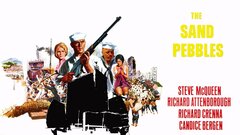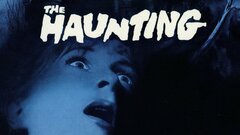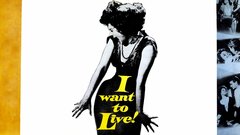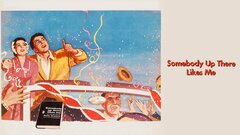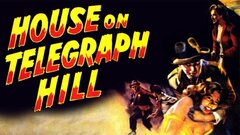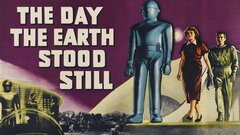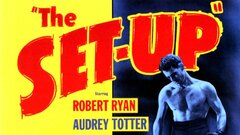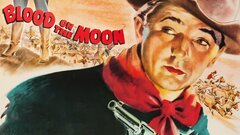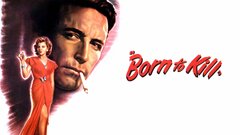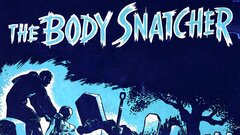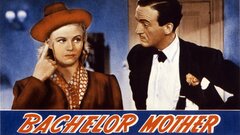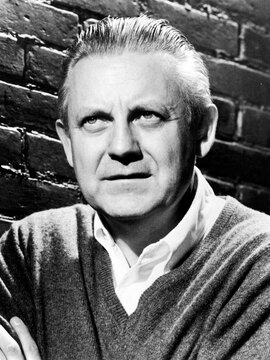Veteran Hollywood director Robert Wise was credited with helming 39 feature films from 1944 to 1989, establishing an admirable reputation in such a wide variety of genres as to prompt some critics to unfairly posit that there was no "Wise style." At the beginning of his career, he worked with equal facility in horror ("The Curse of the Cat People") (1944), film noir ("Born to Kill") (1947), Westerns ("Blood on the Moon") (1948), sports ("The Set-Up") (1949) and sci-fi ("The Day the Earth Stood Still") (1951), demonstrating a visual and narrative dexterity that other filmmakers could only marvel at. After earning his stripes in the 1950s, Wise went on to become one of the most successful and revered directors of the following decade, winning four Oscars for his work on the musical extravaganzas "West Side Story" (1961) and "The Sound of Music" (1965). As film budgets - and studio expectations - skyrocketed, more personal projects, such as the uncompromising Steve McQueen war drama "The Sand Pebbles" (1966), became increasingly difficult for Wise to mount. And although one of his final directorial efforts, the big-budget spectacular "Star Trek: The Motion Picture" (1979), may not have been greeted with the unqualified praise the studio had hoped for, it nonetheless demonstrated the work of a master craftsman, still in full possession of his artistic powers. When responding to the charges of some that Wise never left a personal, artistic imprint on his films, the director replied that it was not the director's job to tailor the film to themselves, but rather, to tailor themselves to the film.
Born Robert Earl Wise on Sept. 10, 1914 in Winchester, IN to parents Olive and Earl Wise, he attended Connersville High School, prior to a brief stint at Franklin College near Indianapolis. Forced to drop out of college in the midst of the Great Depression, Wise - a life long film devotee - followed his older brother to Los Angeles, where he secured a job in the editorial department at RKO Pictures. In the decade that followed his arrival in Hollywood, Wise worked his way through the ranks; first, as an assistant, then an apprentice sound effects editor, and eventually, film editor. After editing such notable films as Lon Chaney's "The Hunchback of Notre Dame" (1939), Wise went on to earn an Oscar nomination for his work on Orson Welles' "Citizen Kane" (1941) and following it up with some early uncredited - and somewhat controversial - directorial work on Welles' troubled "The Magnificent Ambersons" (1942). An even greater influence than Welles on the young Wise was B-movie producer Val Lewton, who tapped him to take over for the faltering Gunther von Fritsch as director of the low-budget horror picture "The Curse of the Cat People" (1944). Wise's first three directorial projects - also including "Mademoiselle Fifi" (1944) and "The Body Snatcher" (1945) - were all under Lewton's aegis at RKO, and Wise benefited greatly from his mentor's affinity for literate material, psychological drama, and a deeply atmospheric style.
RKO finally provided Wise with his first "A" film budget for the ambitious Western "Blood on the Moon" (1948), which starred Robert Mitchum, but it was Wise's work on his final RKO film, the boxing feature "The Set-Up" (1949), that established him as a leading Hollywood talent. Praised for its uncompromising realism, the virtuoso editing of the fight sequences, and the quasi-expressionistic reaction shots of the ringside crowd, "The Set-Up" won the Critics' Prize at Cannes. Wise departed RKO for a three-year, non-exclusive contract with 20th Century-Fox, where he helmed the landmark science fiction classic "The Day the Earth Stood Still" (1951), a so-called "message movie" in a genre given little credibility or respect at the time. The cautionary tale of an extraterrestrial emissary of peace (Michael Rennie) was blatantly anti-nuclear at the height of the Cold War, and a significant step in sci-fi's development away from the simple whiz-bang storytelling of the past. Wise later entered the MGM fold to direct the multifaceted tale of a company power struggle, "Executive Suite" (1954), the first of four collaborations with esteemed screenwriter Ernest Lehman. He reteamed with Lehman for the second time on "Somebody Up There Likes Me" (1956), adapted from the autobiography of the middleweight boxing champion Rocky Graziano. It became Wise's biggest hit of the 1950s, and offered an outstanding performance by Paul Newman in only his second film role, in addition to noteworthy debuts by Steve McQueen and Robert Loggia.
On a roll, the young director continued to work with the best and brightest in Hollywood, on such projects as the psychological WWII naval drama "Run Silent, Run Deep" (1958), co-starring leading men icons Clark Gable and Burt Lancaster. That same year, Wise earned his first Oscar nomination as Best Director for "I Want to Live!" (1958), a pointedly anti-capital punishment prison drama, which won star Susan Hayward the Best Actress statuette for her portrayal of a woman condemned to death for a crime she may or may not have committed. A few short years later, Wise followed with "West Side Story" (1961), a spectacular updating of Shakespeare's "Romeo and Juliet" set in the streets of modern day New York City. The musical went on to win a grand total of 10 Oscars, including Best Picture and Best Director. Shifting gears once again, the chameleon-like director returned to the genre of horror with "The Haunting" (1963). Regarded by many as one of the best haunted house movies ever committed to film, the story would later be frequently imitated, but never duplicated. At the height of his professional career, Wise returned with another musical, this one following the exploits of a governess and a brood of musically gifted children in Nazi-controlled Austria during World War II. "The Sound of Music" (1965) - the film that made an international superstar of Julie Andrews - would earn Wise another Best Director Oscar, as well as one for Best Picture, going on to become the most financially successful picture of its time. Wise returned one year later with the sprawling war saga "The Sand Pebbles" (1966), starring Steve McQueen as a sailor on a U.S. gunboat in China at the outbreak of the country's civil war in the 1920s. The film, seen by many as an implicit anti-Vietnam War statement, earned Wise another Oscar nomination for Best Picture, as well as one for McQueen as Best Actor - his only Academy Award nomination.
As the 1960s drew to a close, so too did Wise's halcyon days as an in-demand director. In keeping with her two-picture deal with 20th Century Fox, Julie Andrews signed on for the lead in Wise's next project, "Star!" (1968), a musical chronicling the life of legendary British entertainer Gertrude Lawrence. Unfortunately, the American public's appetite for musical spectaculars had dropped off as the decade wore on, and audiences expecting a "Sound of Music" reprisal were wholly disappointed. The film suffered from indifference at the box office, as well as last-minute retooling by the studio, and was soon consigned to the cinematic equivalent of persona-non-grata. The venerable director bounced back with a return to science fiction in the moderately successful "The Andromeda Strain" (1971). Based on the novel by Michael Crichton, the film told the story of a small team of scientists in a race against time as they investigate a deadly organism of extraterrestrial origin. Working on a much grander scale, Wise directed the historical disaster epic "The Hindenburg" (1975), featuring and an all star cast that included George C. Scott and Anne Bancroft. Despite its impressive array of special effects and Wise's usual keen attention to detail, the film was savaged by critics and eschewed by audiences. Not fairing much better was "Audrey Rose" (1977), a metaphysical thriller about reincarnation, wrong-headedly promoted by the studio as a shocker in the vein of "The Exorcist" (1973).
With "Star Trek: The Motion Picture" (1979), Wise found himself once more at the helm of a science fiction project, but also resurrecting one of the more beloved properties in television history - not to mention working on a budgetary scale larger than anything he had previously attempted. The production was plagued by problems from the start, soon running over budget and over schedule. When the "Star Trek" feature film arrived in theaters it was met with mixed reactions, and despite earning impressive box office returns, was not the blockbuster Paramount Studios had hoped for. It would be 10 years before Wise would return to the director's chair with "Rooftops" (1989), an urban crime drama, infused with a combative dance style known as capoeira. The film, starring Jason Gedrick, was clearly an attempt to revisit Wise's "West Side Story" glory days, but instead became a rare blemish on the revered filmmaker's lengthy résumé after receiving a nearly unanimous drubbing from critics. Sadly, this would mark Wise's final theatrical effort as a director. A decade later, Wise directed his first made-for-television movie "A Storm in Summer" (Showtime, 2000), starring Peter Falk and written by the late Rod Serling. The highly regarded and decidedly unsentimental family drama would be his final film. In 2005, Robert Wise died of a heart attack at the age of 91.














